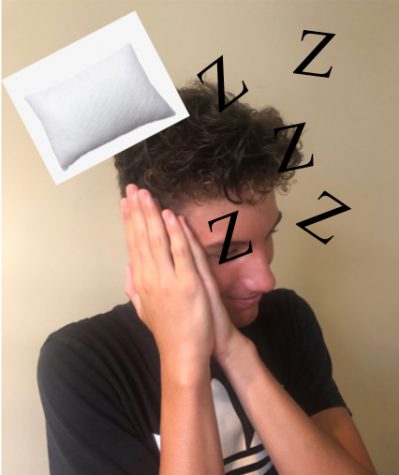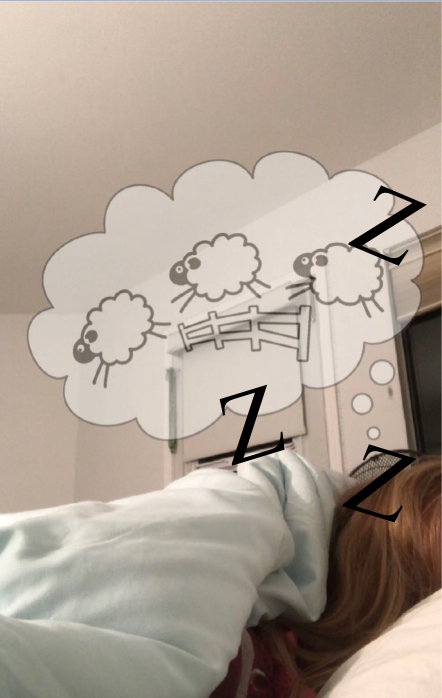Catching Some Zzzzzzs
Sleep Advice for a Healthier You
Many people don’t realize how important sleep is to their daily life and mental/physical health. Having a good night’s rest is key to having a better day, mood, energy, and focus.
According to an article on the Sleep Foundation website, “Sleep is an essential function that allows your body and mind to recharge, leaving you refreshed and alert when you wake up. Sleep also helps the body remain healthy. Without enough sleep, the brain cannot function properly. This can impair your abilities to concentrate, think clearly, and process memories.” Most adults need between seven and nine hours of nightly sleep. However, children and teenagers need more sleep to maintain a good positive mindset and to think clearly. There are so many reasons why sleep could help you during your daily life but these are just some of them. The National Sleep Foundation recommends the following daily sleep times for different age groups.
Teens and young adults need about seven to ten hours of sleep. I interviewed my brother Andrew and my good friend Giselle Hory to see how much sleep they get daily and how the amount of sleep they get each night has an impact on their daily life. Andrew gets about eight to eight and a half hours of sleep each night. When he gets enough sleep he feels good, happy, joyful, and refreshed. It’s a lot easier for him to focus and have less stress when he gets a good amount of hours each night. When he doesn’t get enough sleep, he said “… I feel groggy, moody, and fatigued.” He has no energy and doesn’t have the mindset to do certain things such as sports and school work.
Giselle Hory gets around nine to ten hours of sleep each night. She feels “…refreshed and my classes are easier because I feel more awake and connected.” Her mood is affected when she gets less sleep because she feels more impatient and less motivated to do schoolwork. Both Andrew and Giselle’s answers are similar and support the fact that not getting enough sleep each night can affect you throughout the day.
Insomnia is a very common sleep problem for most adults and having a bad sleep schedule/unhealthy habits throughout the day can lead to having severe insomnia. The National Institute of Health estimates that thirty percent of the general population complains of sleep disruption. According to Sleep Foundation, there are two types of main insomnia disorders: “Sleep-onset insomnia, and sleep maintenance insomnia. Sleep-onset insomnia refers to difficulty falling asleep. Sleep maintenance insomnia refers to difficulty staying asleep after initially nodding off, or waking up abruptly in the middle of the night then trying to go back to sleep.” This type of insomnia is common in elderly people as well as people who consume alcohol, caffeine, or tobacco before bed. Helpful tips to avoid sleep insomnia is restricting the use of alcohol, caffeine, and tobacco products in the evening, avoiding late-night meals, limiting screen time before bedtime, making sure you exercise regularly during the day, and lastly have a consistent sleep schedule that includes the same bedtimes and wake-up times every day. 
Dreams are a healthy part of your sleep. Normally people get an average of three to six dreams each night. Sleep Foundation explains that “dreams are a series of images, stories, emotions, and feelings that occur throughout the stages of sleep. The dreams that you remember happen during the REM cycle of sleep. REM means rapid eye movement. The REM sleep happens approximately ninety minutes after you have fallen asleep and lasts around ten minutes. The brain is very active at this point and that is when the more memorable dreams happen.” Dreams can be good or bad, and they have a big impact on your daily life and how you go about things. Frequent nightmares may delay a person’s ability to fall asleep and then cause sleepiness during the day. During this time, many people are stressed and have a lot on their plates, so during their sleep time, they can have many nightmares. Nightmares can be caused by multiple things but one of them is sleep deprivation which is from an unhealthy sleep schedule. Nightmares are a negative type of dream that causes someone to wake abruptly and is associated with the REM sleep cycle. Nightmares can happen to anyone of any age. Sleep deprivation can cause an increase in nightmares because having an irregular sleep schedule that interrupts or reduces the amount of sleep can increase your risk of having nightmares. Insomnia also relates to this factor.
Having a healthy consistent sleep schedule can help your mood, mindset, dreams, insomnia, etc. Making sure you’re getting enough sleep every night, especially after a long stressful day, is key to having a healthy body and mindset so you’re ready for the days to come.

Briana Shevlet is an 8th grader at MBMS. You can usually find her downtown or at the beach with her friends. One vacation place Briana would like to visit...





Kerry Riccio Aguero • Dec 10, 2020 at 12:31 am
Briana – great article! This is such an important topic and definitely relevant with some schools pushing back start times of schools to enable students to sleep in.
Thank you for all your hard work!